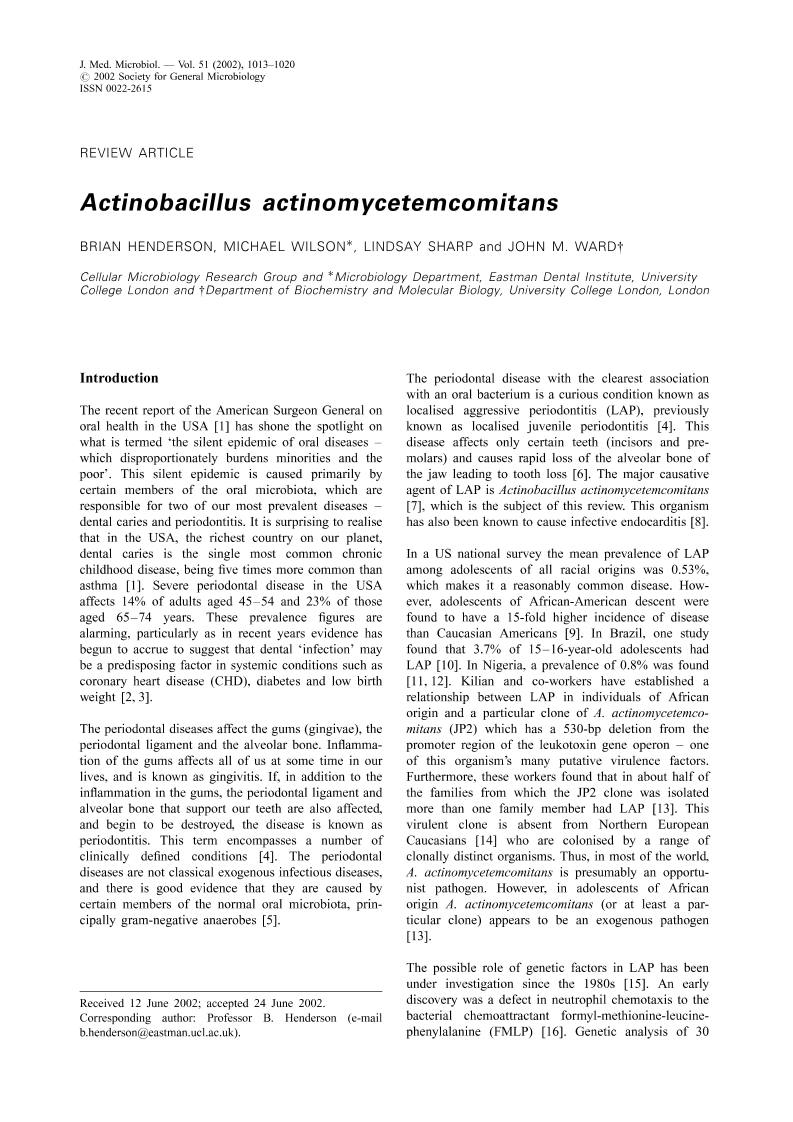
Full text loading...

Actinobacillus actinomycetemcomitans, Page 1 of 1
< Previous page | Next page > /docserver/preview/fulltext/jmm/51/12/mjm5112.1013-1.gif
There is no abstract available.

Article metrics loading...

Full text loading...
References

